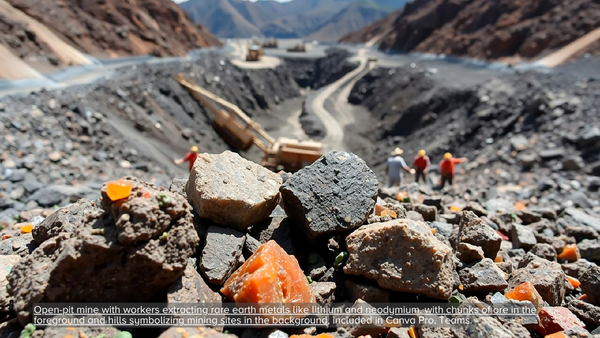On 1-2 December, makeITfair and the Goma-based Pole Institute are organising a round table on the issue of conflict minerals. The aim of this round table is to provide a platform of input sharing between local Congolese stakeholders, representatives of international initiatives, and brand companies. The round table will follow up on publications by Pole Institute and makeITfair, reflecting local views on the reforms of the Congolese mining sector. Pole Institute and makeITfair maintain that there is a need for increased Congolese involvement in the ongoing efforts to curb the trade of ‘conflict minerals’ from the region.
On 1-2 December, makeITfair and the Goma-based Pole Institute organise a round table on the issue of conflict minerals. The aim of this round table is to provide a platform of input sharing between local Congolese stakeholders, representatives of international initiatives, and brand companies. The round table follows on publications by Pole Institute and makeITfair.
The round table will be held in Goma, Democratic Republic of Congo. There will be space for approximately 20-30 international participants, and 20-30 local stakeholders. The agenda for this two day event is currently being drafted and will be sent around shortly. The round table also presents a unique opportunity for two ends of long and complex supply chains (brand companies and local civil society stakeholder organisations) to come together and bridge the wide gap between the extractive phase, production phase and retail phase. If you are interested in participating, and/or would like to offer suggestions for the agenda, please contact Tim Steinweg of makeITfair, or Aloys Tegera of Pole Insitute.
August 2010, Pole Institute published 'Blood minerals: The Criminalization of the Mining Industry in Eastern DRC'. The socio-economic consequences of persistent conflict and state failure in Eastern Congo and the search for ways in which the Congolese can re-appropriate their own destiny have always been at the heart of the work of Pole Institute. Partly triggered by Pole Institute's research on the mineral trade, much international discussion has arisen in recent years about reordering the Eastern Congolese economy in order to make it less conflict-prone. While recognising the good intentions behind these efforts, Pole Institute is convinced that sustainable and sensible solutions can only be found by those directly concerned.
In September 2010, makeITfair will come out with a new report reflecting on local views on the reforms of the Congolese mining sector. makeITfair maintains that there is a need for increased Congolese involvement in the ongoing efforts to curb the trade of ‘conflict minerals’ from the region.
For this, local actors and stakeholders need to come together in an atmosphere of trust and mutual respect in order to arrive at a common understanding of the problem with a view to working out solutions. To this end, in 2010 Pole Institute has set up a round table around the mineral economy of Eastern Congo, uniting public and private decision makers, state representatives, enterprises, mining cooperatives and civil society organisations. The first meeting of this round table in March 2010 gave rise to a series of written papers which are collected in the 'Blood minerals' report. These papers will serve as a basis for further discussion. The round table scheduled for 1-2 December will be a second meeting in this vein.










